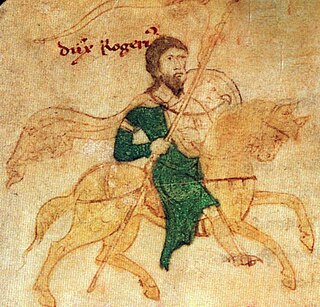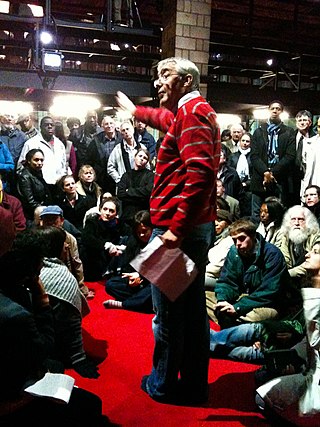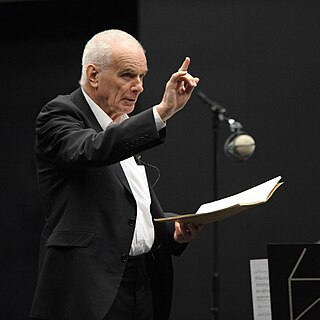Related Research Articles

King Roger is an opera in three acts by Karol Szymanowski to a Polish libretto by the composer himself and Jarosław Iwaszkiewicz, the composer's cousin. The score was finished in 1924. The opera received its world premiere on 19 June 1926 at the Grand Theatre, Warsaw, with the cast including the composer's sister, the soprano Stanisława Korwin-Szymanowska, as Roxana.

The Royal Opera is a British opera company based in central London, resident at the Royal Opera House in Covent Garden. Along with English National Opera, it is one of the two principal opera companies in London. Founded in 1946 as the Covent Garden Opera Company, the company had that title until 1968. It brought a long annual season and consistent management to a house that had previously hosted short seasons under a series of impresarios. Since its inception, it has shared the Royal Opera House with the dance company now known as The Royal Ballet.

The English Cat is an opera in two acts by Hans Werner Henze to an English libretto by Edward Bond, based on Les peines de coeur d'une chatte anglaise by Honoré de Balzac. The opera was first performed in a German translation by the Stuttgart Opera at the Schlosstheater Schwetzingen at the Schwetzingen Festival on 2 June 1983. The French premiere was at the Opéra-Comique, Paris in 1984. The first performance using the original English text was at Santa Fe on 13 July 1985. The UK premiere was at the Leith Theatre, Edinburgh, on 19 August 1987. A revised version was performed at Montepulciano in 1990 and this was given in London in 1991.

Birmingham Opera Company is a professional opera company based in Birmingham, England, that specialises in innovative and avant-garde productions of the operatic repertoire, often in unusual venues.
Dame Judith Weir is a British composer serving as Master of the King's Music. Appointed in 2014 by Queen Elizabeth II, Weir is the first woman to hold this office.

Sir Andrew Frank Davis is an English conductor. He is conductor laureate of the Toronto Symphony Orchestra, the Melbourne Symphony Orchestra, and the BBC Symphony Orchestra.

Julian Mark Ovenden is an English actor and singer. He has starred on Broadway and West End stages, in television series in both the United Kingdom and United States, in films, and performed internationally as a concert and recording artist.

We Come to the River – Wir erreichen den Fluss is an opera by Hans Werner Henze to an English-language libretto by Edward Bond. Henze and Bond described this work as "Actions for music", rather than an opera. It was Henze's 7th opera, originally written for The Royal Opera in London, and takes as its focus the horrors of war. The opera was first performed at the Royal Opera House, Covent Garden, London on 12 July 1976, with the composer as producer, Jürgen Henze as director, and David Atherton conducting. It was subsequently staged at the Deutsche Oper Berlin, and received its first American performance at Santa Fe Opera in 1984, conducted by Dennis Russell Davies.

Owen Wingrave, Op. 85, is an opera in two acts with music by Benjamin Britten and libretto by Myfanwy Piper, after a short story by Henry James. It was originally written for televised performance.
The Tempest is an opera by English composer Thomas Adès with a libretto in English by Meredith Oakes based on the play The Tempest by William Shakespeare.
Meredith Oakes is an Australian playwright who has lived in London since 1970. She has written plays, adaptations, translations, opera texts and poems, and taught play-writing at Royal Holloway College and for the Arvon Foundation. She also wrote music criticism before leaving Australia for The Daily Telegraph in Sydney, and from 1988 to 1991 for The Independent, as well as contributing to a variety of magazines including The Listener.
Harry Alexander Clarence Bicket is a British conductor, harpsichordist and organist. He is particularly associated with the baroque and classical repertoire.
A Night at the Chinese Opera is an opera in three acts by Judith Weir, who also wrote the libretto. Aside from an earlier opera for children, this was Weir's first full-scale opera, written on commission from the BBC for performance by Kent Opera. Weir incorporated an early Chinese play of the Yuan dynasty, The Orphan of Zhao, as the centrepiece of Act 2 of her opera.
Blond Eckbert is an opera by Scottish composer Judith Weir. The composer wrote the English-language libretto herself, basing it on the cryptic supernatural short story Der blonde Eckbert by the German Romantic writer Ludwig Tieck. Weir completed the original two-act version of the opera in 1993, making Blond Eckbert her third full-length work in the genre. Like its predecessors, it was received well by the critics. She later produced a one act "pocket" version of the work. This uses chamber forces rather than the full orchestra of the two act version and omits the chorus. The pocket version receives frequent performances, especially in Germany and Austria, while the full version is available in a recording featuring the original cast.
Edward Seckerson is a British music journalist and radio presenter specialising in musical theatre. Formerly Chief Classical Music Critic of the Independent, Edward Seckerson is a writer, broadcaster and podcaster. He wrote and presented the long-running BBC Radio 3 series Stage & Screen in which he interviewed many of the most prominent writers and stars of musical theatre. He appears regularly on BBC Radio 3 and 4. On television, he has commentated a number of times at the Cardiff Singer of the World competition. He has published books on Mahler and the conductor Michael Tilson Thomas, and has been on Gramophone Magazine’s review panel for many years. Edward presented the long-running BBC Radio Four musical quiz Counterpoint for one year in 2007, after the death of Ned Sherrin.

Kommilitonen! is an opera by Sir Peter Maxwell Davies. The libretto is by David Pountney, who was also the director of the premiere performances in March 2011.
Richard Lee Blakeley was a British opera and theatre director.

Tobias Hoheisel is a German-born stage designer and director.
Two Boys is an opera in two acts by American composer Nico Muhly, with an English-language libretto by American playwright Craig Lucas. The opera's story is based on real events in Manchester, England, in 2001 as described in a 2005 Vanity Fair article titled "You Want Me 2 Kill Him?"

Melusine is a 1971 German-language opera by Aribert Reimann, on a libretto by Claus H. Henneberg after Melusine, a 1920 play in four acts by Yvan Goll which transposes the legendary water-spirit to Goll's time. The opera was written for the Schwetzingen Festival, where it premiered in 1971. It was recorded in 2010.
References
- ↑ Kallen, Stuart A., The History of Classical Music, 2013, p. 102. "The 2011 opera Miss Fortune is based on a simple Sicilian fable that was transformed by composer Judith Weir into a parable about modern life. Miss Fortune follows the life of Tina Fortune, whose wealthy ..."
- 1 2 Clements, Andrew (13 March 2012). "Miss Fortune – review". The Guardian . London.
- ↑ Seckerson, Edward (13 March 2012). "Miss Fortune, Royal Opera House". The Independent . London.
- ↑ Press release from The Santa Fe Opera, 22 August 2012.